 Petzlover
Petzlover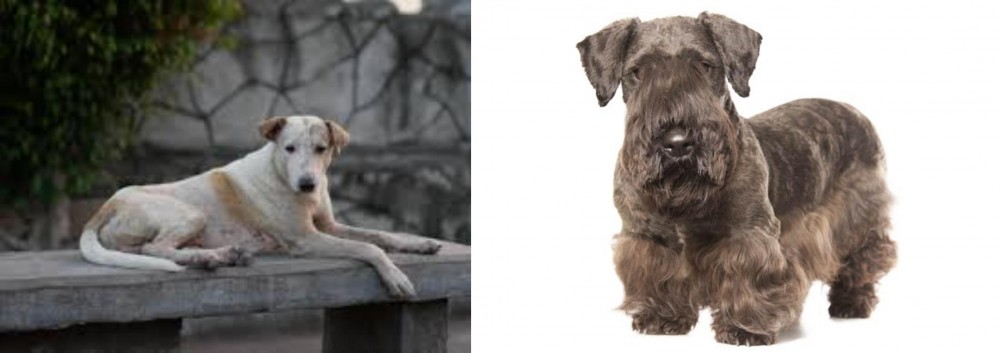 Askal is originated from Philippines but Cesky Terrier is originated from Czech Republic. Askal may grow 43 cm / 17 inches higher than Cesky Terrier. Askal may weigh 19 kg / 42 pounds more than Cesky Terrier. Both Askal and Cesky Terrier has same life span. Askal may have more litter size than Cesky Terrier. Askal requires Low Maintenance. But Cesky Terrier requires Moderate Maintenance
Askal is originated from Philippines but Cesky Terrier is originated from Czech Republic. Askal may grow 43 cm / 17 inches higher than Cesky Terrier. Askal may weigh 19 kg / 42 pounds more than Cesky Terrier. Both Askal and Cesky Terrier has same life span. Askal may have more litter size than Cesky Terrier. Askal requires Low Maintenance. But Cesky Terrier requires Moderate Maintenance
 The Askal is a native dog of the Philippines where until fairly recently it was viewed condescendingly. As strays they have been slaughtered and dished up at the dinner table. Fortunately, campaigns have been launched to protect the dogs. The Askal has existed in the Philippines for centuries but the actual origin of the dogs is unknown. Some people speculate about the dogs, saying they look like the Dingo and must have descended from Australia’s native dog.
The Askal is a native dog of the Philippines where until fairly recently it was viewed condescendingly. As strays they have been slaughtered and dished up at the dinner table. Fortunately, campaigns have been launched to protect the dogs. The Askal has existed in the Philippines for centuries but the actual origin of the dogs is unknown. Some people speculate about the dogs, saying they look like the Dingo and must have descended from Australia’s native dog.
PAWS which is an animal Rescue and Re-homing, non-profit group encourages the use of the term Aspin for the dog as opposed to Askal and has had campaigns to promote the Aspin as a wonderful, local pet – loyal, robust and intelligent. In fact the Aspin Club has now been formed to give the dogs a club of their own and to promote the local breed.
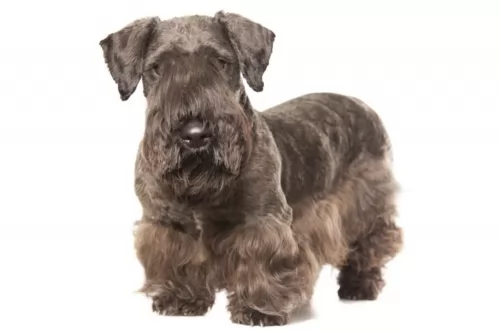 Known as the Bohemian Terrier and looking similar to a Scottish Terrier dog, the Cesky Terrier is a dog breed that has been created by Frantisek Horak, in the Czech Republic.
Known as the Bohemian Terrier and looking similar to a Scottish Terrier dog, the Cesky Terrier is a dog breed that has been created by Frantisek Horak, in the Czech Republic.
Horak wanted to breed a type of hunting dog, and in 1949, using both the Scottish Terrier ad the Sealyham Terrier, he bred the two, creating a new breed that would hopefully be a stronger hunting dog.
The Cesky Terrier was shown for the first time in 1959 and was recognized by the Federation Cynologique Internationale in 1963 and in 1993 by the United Kennel Club. It’s a rare dog this, and is the national dog of the Czech Republic.
 Askals make awesome companions – intelligent and loving and their status is improving.
Askals make awesome companions – intelligent and loving and their status is improving.
Askals are now being trained to be bomb and narcotics sniffing dogs and it seems as though there are talks about making the Askal the national dog of the Philippines. They’re smart enough to train and socialize if you train them with patience and kindness.
They are medium-sized, feisty dogs with fairly long thin legs with short dense coats of many different colours. With their long, pointed muzzles and good, strong teeth, their ear shapes vary too, as some have pricked ears, while others have one pricked and one floppy ear.
The Askal will make a good watch dogs and he is protective with hisr human family, getting on well with children in the home, loving their energy and games.
 The Cesky Terrer is a longish dog, much like the Scottie and he also has short legs. He is roughly 29ck in height at the withers, is about 43cm in length and weighs anything from 5 to 10kg.
The Cesky Terrer is a longish dog, much like the Scottie and he also has short legs. He is roughly 29ck in height at the withers, is about 43cm in length and weighs anything from 5 to 10kg.
The coat of this dog is long, silky and quite wavy and can be in a number of different shades of gray or a light brown color. Puppies are born black. The soft coat can be kept groomed by clippers or you can take him to have his coat professionally trimmed.
This dog breed has natural drop ears, unlike the Scottie which has erect ears. The tail length is 18-20 cm and low set.
A loyal, quiet and loving family dog, the Cesky Terrier will get on well with children in the home and he is also friendly with other dogs. Just like with any other dog, it will be important to socialize the dog breed at an early age as then he becomes obedient, smart and relaxed. He is a breed which is also easy to train. He also makes a good watchdog.
 The Askal is an independent canine, street-smart and intelligent. He is a great pet for anyone who hasn't owned a pet before as he is low maintenance and undemanding.
The Askal is an independent canine, street-smart and intelligent. He is a great pet for anyone who hasn't owned a pet before as he is low maintenance and undemanding.
The Askal is intelligent and you won't have trouble teaching him some tricks and socializing him. He gets on well with children in the home as well as with other pets and his loyalty and devotion will ensure that he makes one hang of a companion.
He is just your 'dog next door', has no hang-ups and is simple to please. Be patient and kind to him and you'll be rewarded by having an awesome best friend.
Your Askal is wanting to be your unconditional friend through thick and thin. His undemanding, low maintenance character will mean that you won't be running to the vet with him all the time. Look after him well, include him as a member of the family and in exchange you'll have a wonderful best friend.
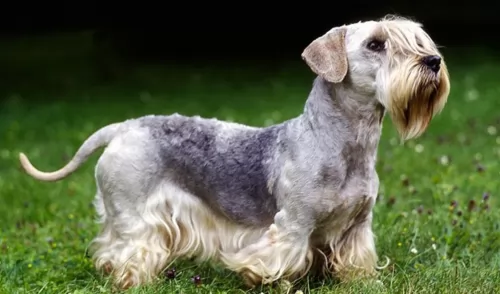 The Cesky Terrier isn’t a small-dog yapper and he will adapt to life in the city or the country. He is a small dog, but he is feisty and sporty and will willingly join you with your jogging or when you go on a walk.
The Cesky Terrier isn’t a small-dog yapper and he will adapt to life in the city or the country. He is a small dog, but he is feisty and sporty and will willingly join you with your jogging or when you go on a walk.
He is intelligent and playful and when you add in characteristics such as being courageous, loving, loyal and feisty, you can see that the Cesky Terrier is guaranteed to make a super family pet.
 Askals are healthy dogs because they are a mixed breed. The parents of a mongrel puppy have fewer genes in common than would be with a pure-bred mating. This is a distinct health advantage and mongrels are healthier and live longer than pure bred dogs. Street dogs have greater generic diversity and this gives them high resistance to many common dog illnesses.
Askals are healthy dogs because they are a mixed breed. The parents of a mongrel puppy have fewer genes in common than would be with a pure-bred mating. This is a distinct health advantage and mongrels are healthier and live longer than pure bred dogs. Street dogs have greater generic diversity and this gives them high resistance to many common dog illnesses.
The Askal is a tough, low maintenance dog that won’t cost you a lot of money in veterinary bills. Every Askal puppy will have to be taken to the vet to get his must-have vaccinations to protect him from killer dog diseases.
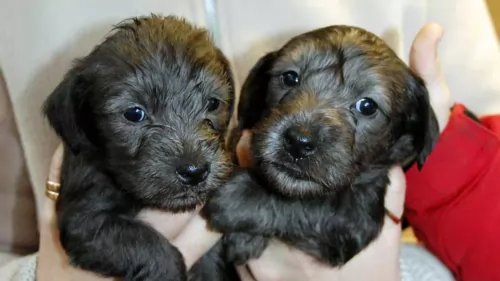 The Cesky Terrier is generally a healthy dog, but this breed sometimes suffers from common dog ailments that other breeds also have to contend with.
The Cesky Terrier is generally a healthy dog, but this breed sometimes suffers from common dog ailments that other breeds also have to contend with.
Eye disorders, ear infections, pancreatitis, hip dysplasia and weight gain are just some health issues you might need to be aware of.
Remember that if you want to promote a healthier dog, feeding him a quality diet and taking him immediately to the vet when you suspect a problem can keep him free from common dog illnesses.
Pancreatitis for instances develops when the pancreas becomes inflamed, and this can be brought on by allowing your pet to become obese. There are other reasons for pancreatitis too such as infection. You will see diarrhea, fever and vomiting with your pet as well as discomfort from abdominal pain. It’s a disease which affects smaller dogs more often than larger breeds.
 the Askal is a low shedder and to keep him in tip-top condition will require you brushing his shor-haired coat twice a week.
the Askal is a low shedder and to keep him in tip-top condition will require you brushing his shor-haired coat twice a week.
Askals dogs are native Philippine dogs and aren’t difficult to feed. While you want to give your Askal the best quality food possible, they are unlike pure breed pedigrees and their stomachs are far more resilient to disease causing organisms that may upset the stomach. Having such a robust dog as a pet will cost you less in dog food as they can tolerate cheaper quality foods and left over scraps from the family table. Make sure the food you toss to him is fresh as you don’t want to take his strong stomach for granted and risk him getting sick. If you’re able to provide your Askal with hone cooked food, rice, vegetables and meat will be perfect for this wonderful pet of yours. Feeding your Askal will depend on your budget, but that’s the beauty with the Askal – it’s a dog that every dog-lover can own because this isn’t an exotic, expensive dog. Make sure he always has access to a bowl of clean, cool water.
The Askal has always roamed the Phillipine streets. Every dog will require some form of exercising and the Askal is no different. Take him for walks or play ball games with him to ensure he is stimulated and made to feel part of the family.
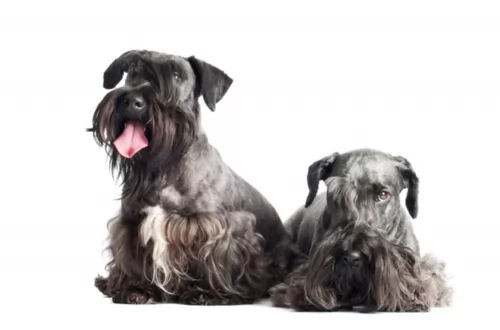 Cesky Terriers may well be a little bit less active and quieter than other terriers, but they will still need a good dose of exercise. He loves to dig, and if he is bored and doesn’t have a plenty of exercise and games, he will want to dig more and cause the owner a lot of frustration. Take him for daily walks and give him some ball games in the garden.
Cesky Terriers may well be a little bit less active and quieter than other terriers, but they will still need a good dose of exercise. He loves to dig, and if he is bored and doesn’t have a plenty of exercise and games, he will want to dig more and cause the owner a lot of frustration. Take him for daily walks and give him some ball games in the garden.
Cesky Terriers will need brushing down at least twice a week and their coats will need to be trimmed into shape every 8 to 10 weeks or so. You’ll also need to check excess hair inside the ears.
As with any dog breed, you will need to check on his nails so that they don’t grow too long and also brush his teeth 2 or 3 times a week to avoid dental disease.